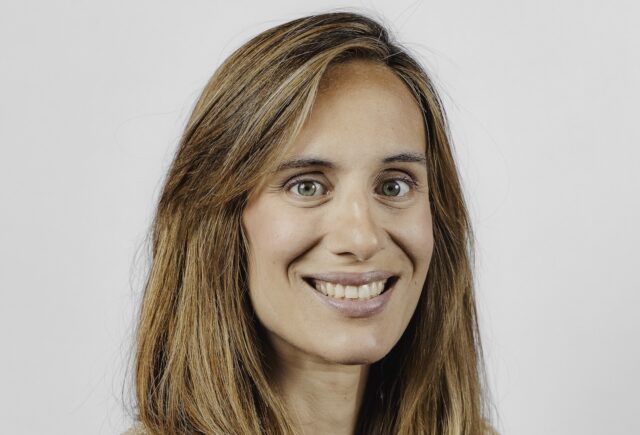Asset owners, industry experts and market practitioners came together at last week’s Impact Investor Forum to share their experiences and talk about the obstacles they face when navigating a just transition.
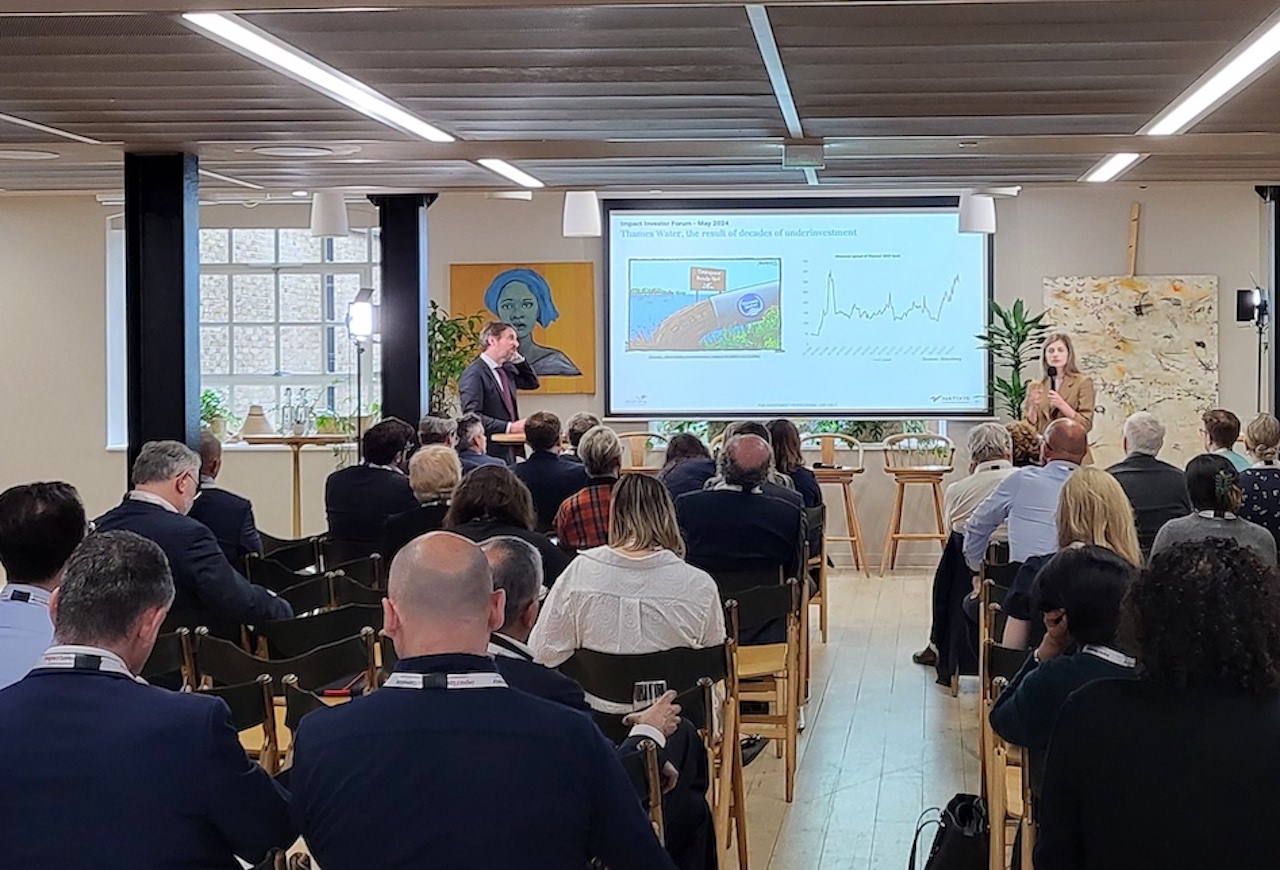
The first annual Impact Investor Forum took place on 16 May at The Conduit in London, where a range of industry leaders discussed their experiences of navigating a just transition and ensuring that any shift to a sustainable economy is fair, inclusive and equitable.
The forum took place under the title ‘Impact Investing and the Just Transition: The Pension Fund View’. Conversations revolved around the importance of adopting a just transition approach to investment management, the need for long-term thinking and integrating holistic considerations into investment processes, as well as some of the broader legal ramifications and complexities for asset owners.
‘The only transition’
Impact Investor co-editor Paula Garrido opened the forum with a welcome address that focused on increasing institutional investment flow into the impact space, signalling mainstream adoption.
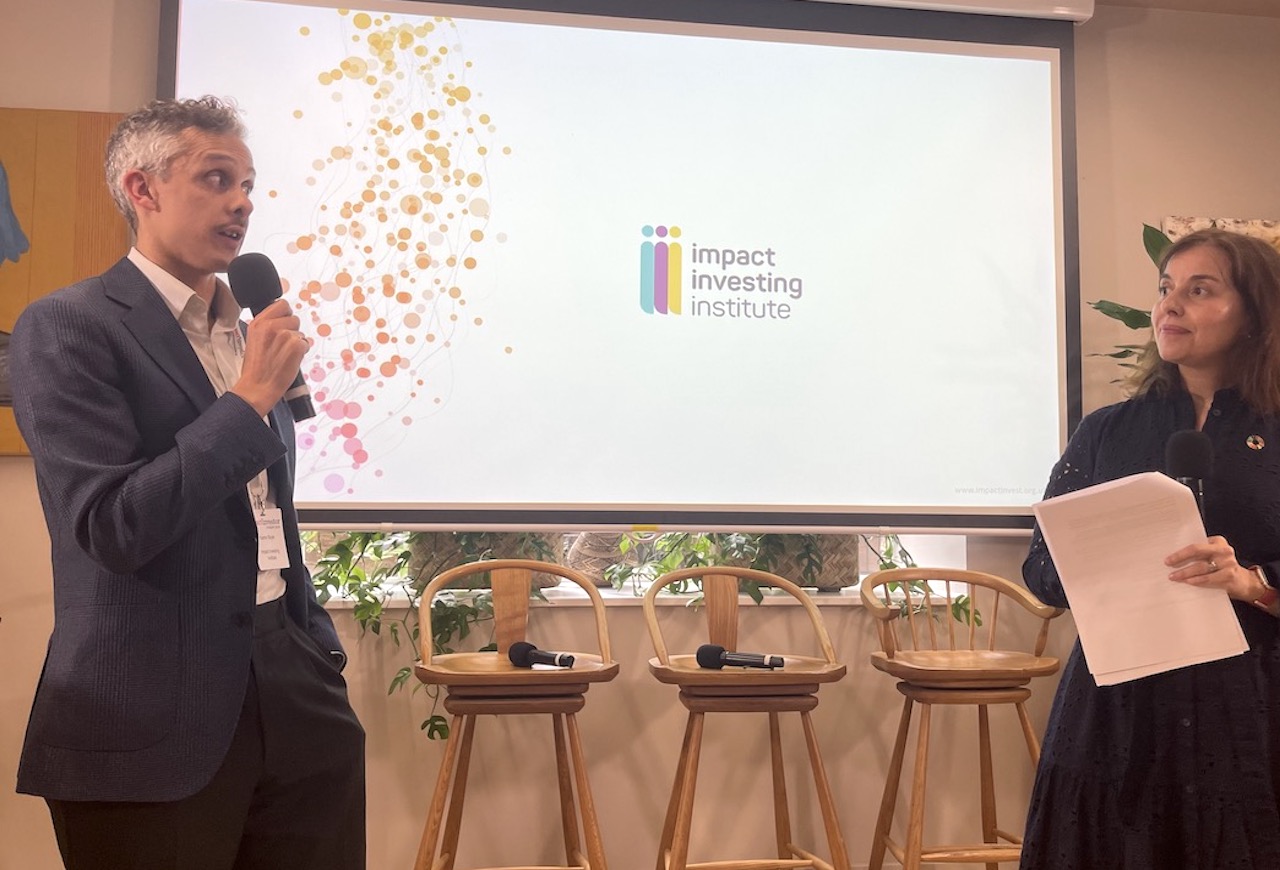
Impact Investment Institute’s CEO Kieron Boyle then went on to speak on the importance of a fair and inclusive net-zero transition, before taking part in a Q&A discussion led by Garrido. Garrido and Boyle talked about how the move to a green future must not leave any communities around the world behind, highlighting the importance of community engagement and political will on these issues.
Boyle gave examples of community protests by farmers in Germany against cuts to diesel fuel subsidies and residents of a West London borough campaigning against the introduction of ultra low emission zones, to highlight the need to bring communities along in any decision-making.
“If I had just one message today, it’s that unless we’re able to think of rounded ways in which the net zero transition can be fair and inclusive. I don’t think we are actually going to have a net zero transition,” he said. “The just transition is the only transition that’s going to work.”
He called for more political engagement around the issue. “If you think about the scale of change needed to get the political capital for this huge industrial and economic revolution that we need to reach net zero, the politics needs to work well, and the risk at the moment is they’re not going to.”
Addressing pension funds, Boyle said for investors thinking about money over the longer term, there were numerous social and environmental challenges as well as opportunities to consider now and in decades to come.
“A flipside of saying there are systemic risks that the financial system needs to respond to, is that there are also huge commercial opportunities for those who are creating businesses and commercial approaches that resolve some of these challenges,” he said, highlighting the scale of capital needed to plug the financing gaps of the UN’s SDGs and meet the goals of a net-zero transition.
“We’re talking about a transformation of capital markets,” he added.
Just transition in practice
Speakers also included Will Goodhart, CEO of CFA UK, who outlined some of the more practical ways that investors could integrate just transition thinking into their strategies, from selection and due diligence to engagement and monitoring.
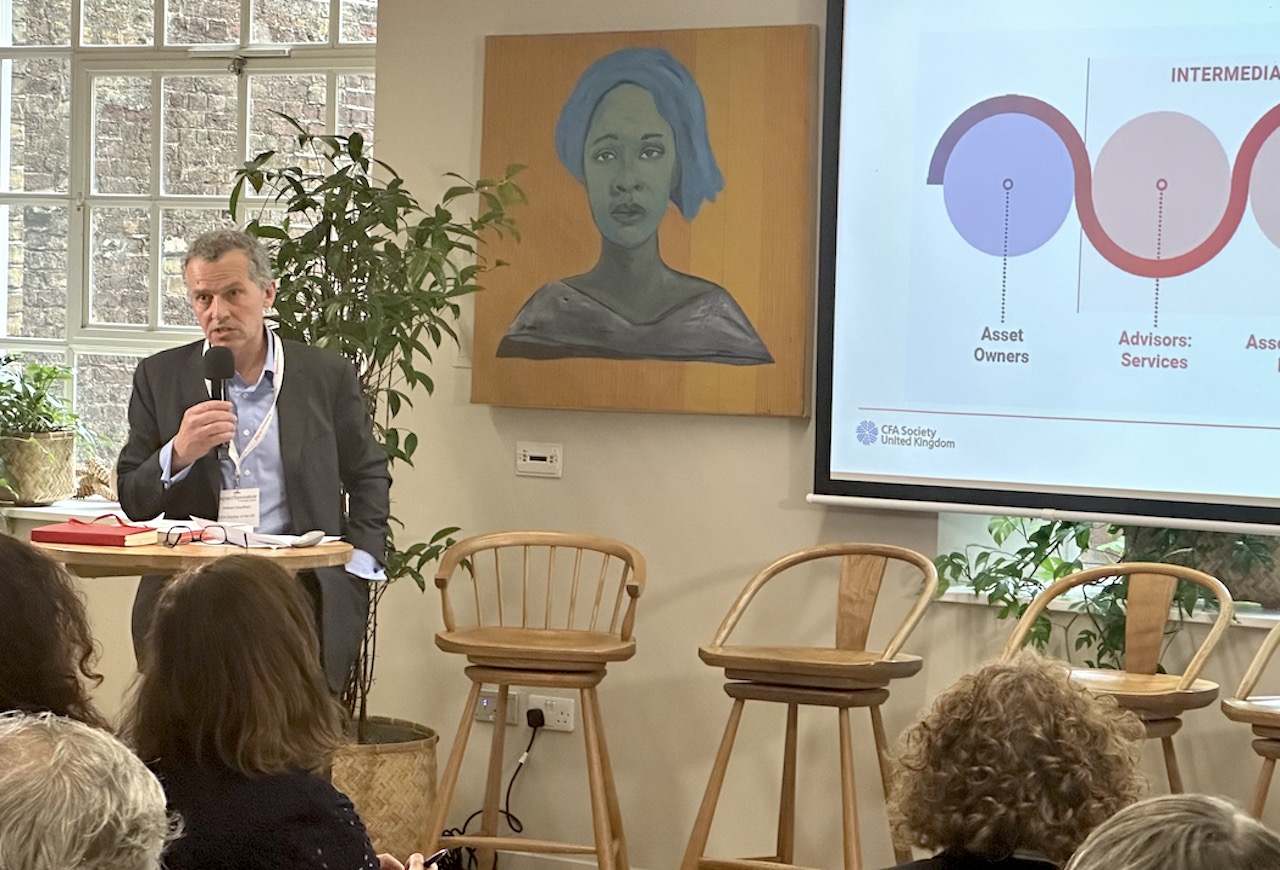
Goodhart mentioned the outperformance of companies that have taken ESG seriously – whether it is because they are better managed or because they focus on parts of the economy that are growing more successfully than others – adding that those that “take the just transition into account will also prove to be organisations that are better managed than others, and are likely to outperform for some of the same reasons, while also mitigating some risks that other people have not yet understood.”
Goodhart also talked about the work that CFA UK itself is doing on these issues, in part through its certificate in impact investing.
Speakers also included Bertrand Rocher, co-head of fixed income, and Lucie Vannoye, credit analyst at Mirova, who discussed the importance of adopting a long term lens when it comes to impact and the just transition, highlighting the case of Thames Water as an example of a company that suffered from decades of underinvestment. They emphasised the role of credit markets in bringing impact considerations forward.
Fiduciary duty
Conversations also centred around investor duties and responsibilities and the just transition.
Jonathan Gilmour and Andy Lewis, partners at legal firm Travers Smith, discussed the ongoing debate around the law and how it frames the fiduciary duties of institutional investors. They examined the role of the just transition within those duties, and whether or not it would legally be a factor for trustees to consider. Gilmour and Lewis highlighted two legal interventions published in the UK – the FMLC report and a report from the Taskforce on Social Factors, both of which have implications for how trustees think about the just transition.
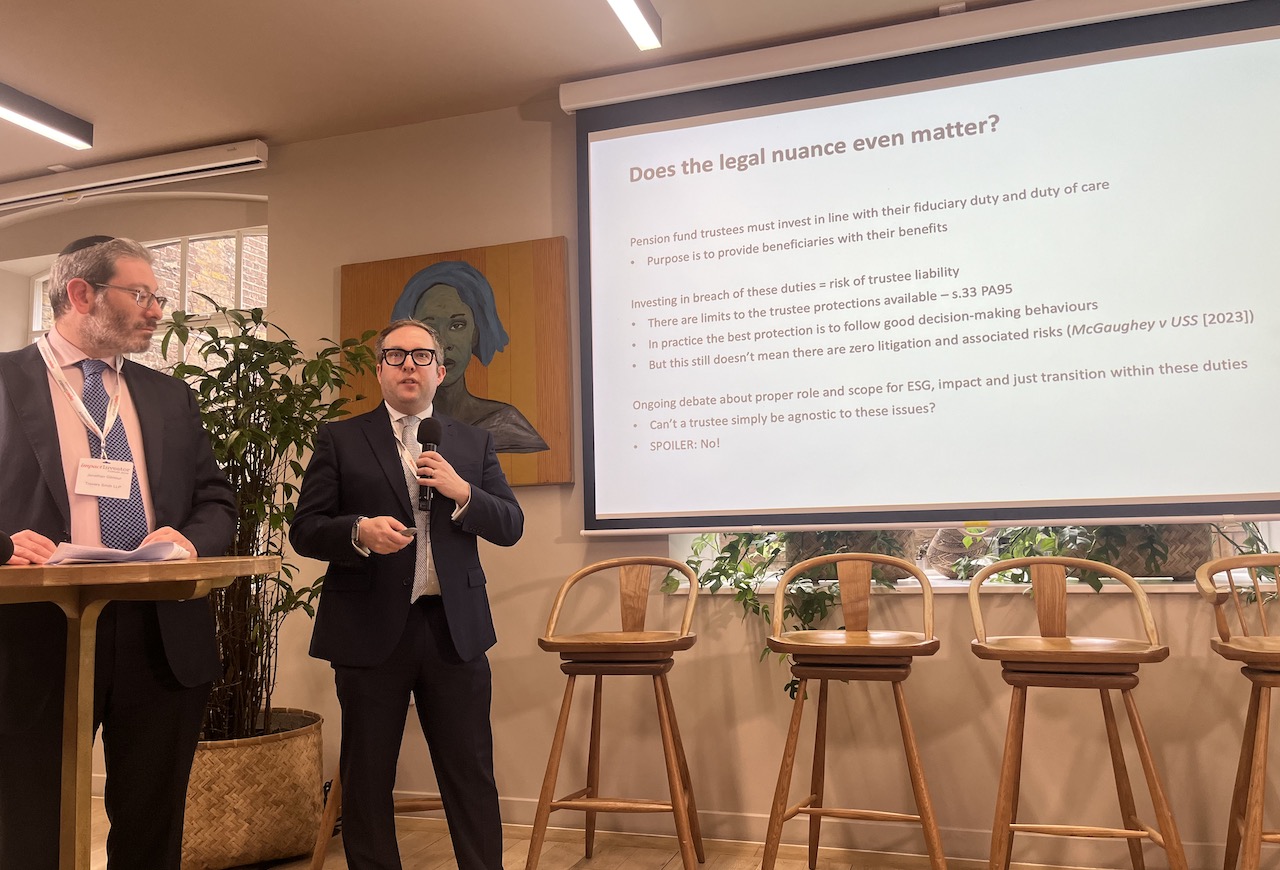
Pension fund panel
A panel discussion chaired by Impact Investor co-editor Maha Khan Phillips concluded the event.
Panellists Sally Bridgeland, an industry veteran and recently appointed co-chair of Brunel Pensions Partnership, Adam Gillet, senior investment manager and climate lead at Railpen, Marc Barnett, head of investment at Cushon and Edina Molnár, vice president, sustainable investment at Redington, all shared their own experiences and expertise of navigating a just transition.

The group discussed the importance of building narratives and telling compelling stories to bring other people along on the journey, and the need to personalise some of these issues to really get buy-in from members on just transition initiatives. They also talked about the importance of pension trustees engaging with asset managers about the ways in which they deploy capital, as well as the ways in which asset managers can harness data to understand how companies are addressing the transition to a low carbon economy.
Stay tuned for our full coverage of the event throughout this week.
Additional reporting by Karolina Adamkiewicz and Danielle Rossingh.

